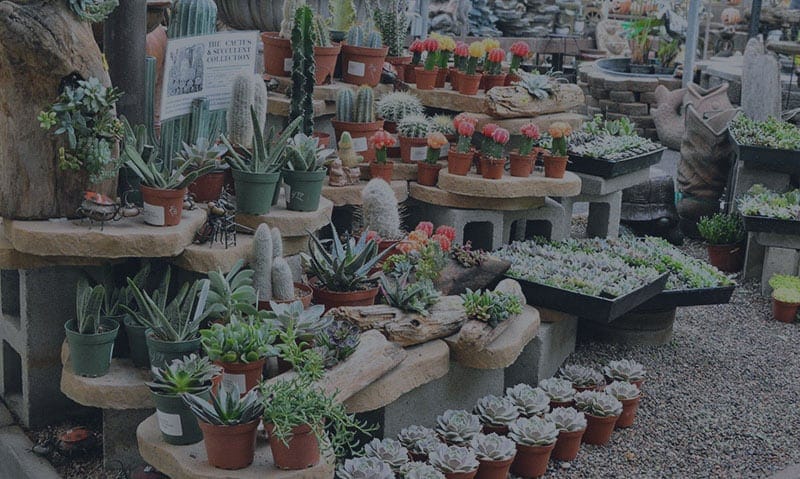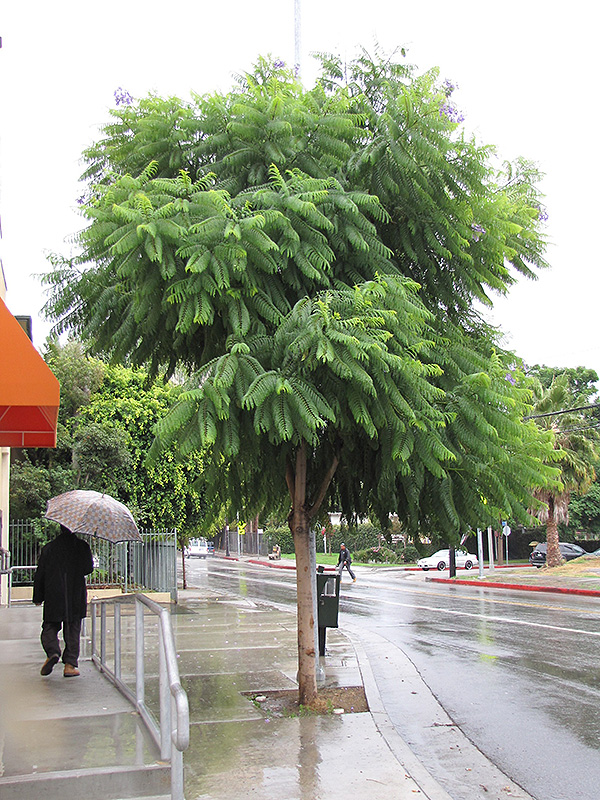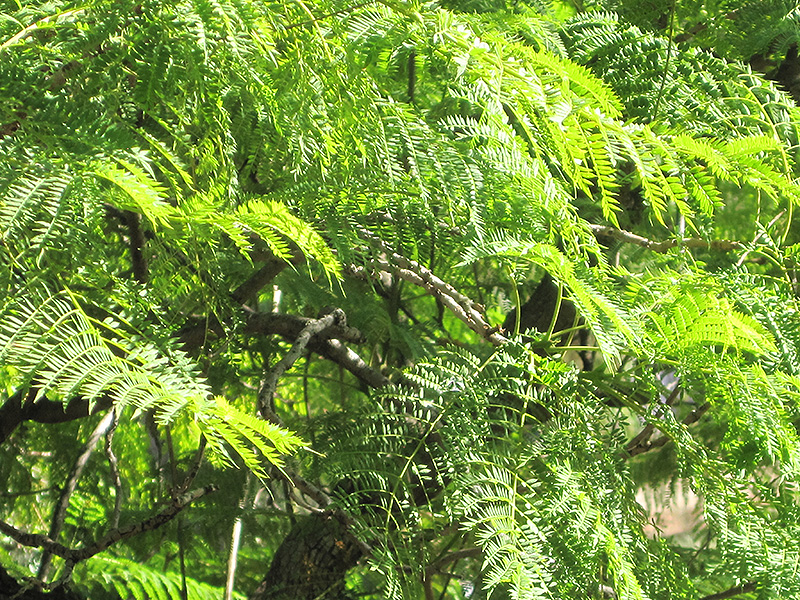Height: 50 feet
Spread: 60 feet
Sunlight:
![]()
Hardiness Zone: 9b
Other Names: Green Ebony, Mimosa-leaved Jacaranda
Description:
This beautiful, fine foliaged tree can grow quite large in warm climates, producing stunning blue-purple, fragrant trumpet flowers that cover it in spring; young, or containered specimens don't normally bloom and are grown for attractive foliage
Ornamental Features
Brazilian Rosewood is covered in stunning clusters of fragrant purple trumpet-shaped flowers along the branches from late spring to early summer before the leaves. It has attractive green deciduous foliage. The ferny compound leaves are highly ornamental but do not develop any appreciable fall color.
Landscape Attributes
Brazilian Rosewood is a multi-stemmed deciduous tree with an upright spreading habit of growth. It lends an extremely fine and delicate texture to the landscape composition which can make it a great accent feature on this basis alone.
This tree will require occasional maintenance and upkeep, and should only be pruned after flowering to avoid removing any of the current season's flowers. It is a good choice for attracting bees, butterflies and hummingbirds to your yard. Gardeners should be aware of the following characteristic(s) that may warrant special consideration;
- Invasive
Brazilian Rosewood is recommended for the following landscape applications;
- Accent
- Shade
- Hedges/Screening
- Container Planting
Planting & Growing
Brazilian Rosewood will grow to be about 50 feet tall at maturity, with a spread of 60 feet. It has a low canopy with a typical clearance of 4 feet from the ground, and should not be planted underneath power lines. It grows at a medium rate, and under ideal conditions can be expected to live for 80 years or more.
This tree should only be grown in full sunlight. It prefers to grow in average to moist conditions, and shouldn't be allowed to dry out. It may require supplemental watering during periods of drought or extended heat. It is not particular as to soil type or pH. It is somewhat tolerant of urban pollution. This species is not originally from North America.
Brazilian Rosewood is a fine choice for the yard, but it is also a good selection for planting in outdoor pots and containers. Its large size and upright habit of growth lend it for use as a solitary accent, or in a composition surrounded by smaller plants around the base and those that spill over the edges. It is even sizeable enough that it can be grown alone in a suitable container. Note that when grown in a container, it may not perform exactly as indicated on the tag - this is to be expected. Also note that when growing plants in outdoor containers and baskets, they may require more frequent waterings than they would in the yard or garden.



